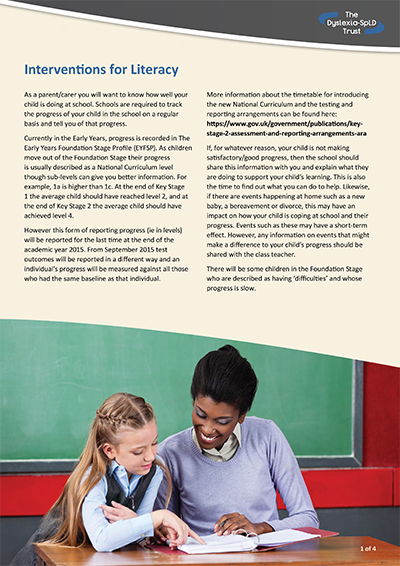Expectations
Expectations |
FAQ’s |
The school should tell you as a parent/carer if your child has literacy difficulties and the nature of these difficulties, and provide you with information on their progress. The school should also ask for your views on the literacy difficulties of your child.
The school should tell you how they are supporting your child with literacy difficulties. This information may be in the form of a provision map. The schools’ processes for informing parents and for taking their and their child’s views into account should be outlined in the SEND information which must be published on their website (SEND regulations 2014).
If your child is significantly behind their age group, you can reasonably expect the school to provide an intervention.
The school should provide you with information on the intervention – how long it will last and how it will fit into the weekly school timetable.
The school will continue to monitor your child’s progress both during the intervention and beyond to ensure their progress is maintained. This information should be made available to you.
The school should let you know how you can support your child’s learning during the intervention programme and beyond.
An effective intervention programme can boost progress and for some children this means catching up with their age group.
An intervention that works will often lead to your child becoming more confident and eager to learn.
Some children require more than one period of intervention, though it is usual that there is a period between interventions when the child’s progress will be monitored.
Schools should have their range of support written down and available to you. Generally schools will have Provision Maps that list the SEN provision to show how they support children with literacy difficulties.
High quality universal teaching is still important,
as a child receiving a separate intervention will,
for the majority of the time, be within the normal classroom. Whatever happens for the child receiving an intervention should be consolidated when they are back in the classroom.
All children make better progress when parents/carers and schools work together.
“Every parent and carer knows how their child is doing, what they need to do to improve, and how they can support the child and their teachers.”
The Assessment for Learning Strategy (2009)
There is a section on frequently asked questions you may find useful.
What article would you like to read?
4. Children with Persistent Literacy Difficulties
6. Roles of the specialist Teacher

